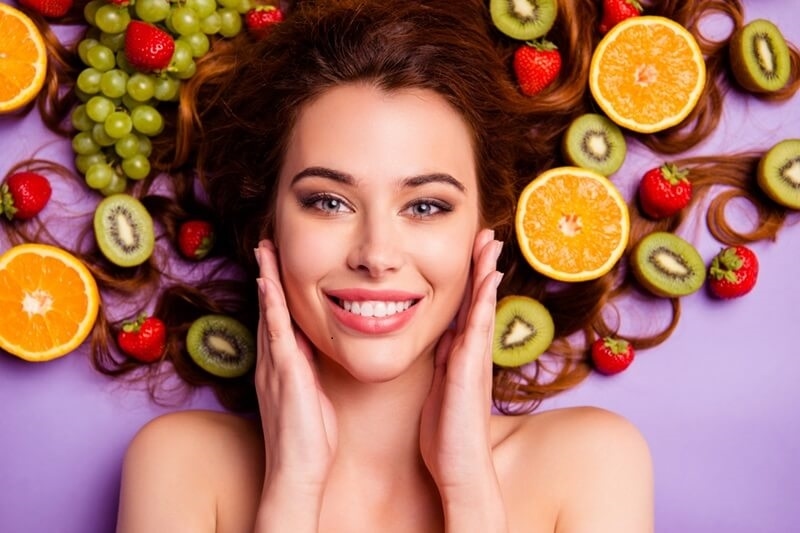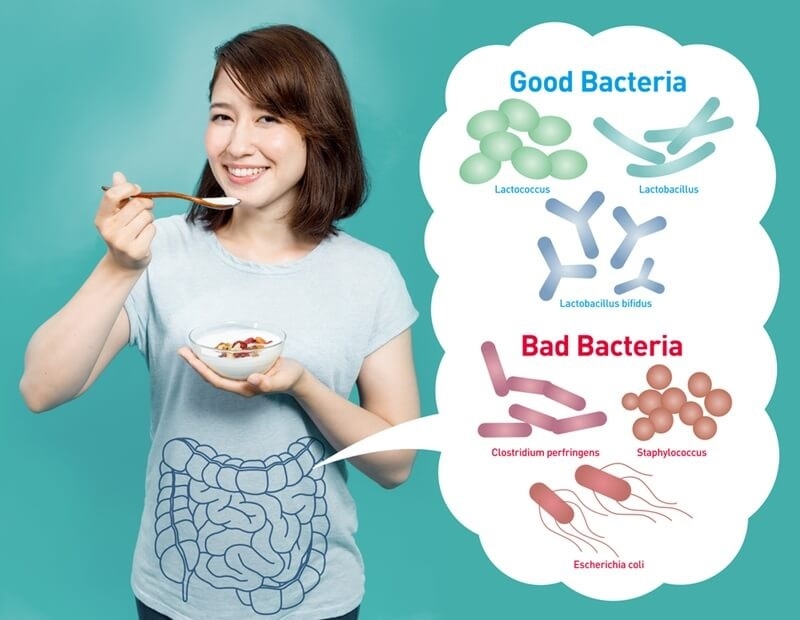
When people think about skin care, they list serums, cleansers, and masks. But they often miss a big part—what they eat inside.
The link between your eats and your skin runs deep. This connection has strong support from studies. It's praised by food and skin pros. The fact is simple: what you eat shows on your face. This blog will dig into the foods that support healthy skin, why gut health counts, and how a good diet can change your look.
The bond between skin care and food is not just a trend—it’s proven science that plays a big role in keeping skin well. Your skin, the body’s biggest part, needs good food to do its best. What you eat impacts skin fixing, fights redness, holds water, and fights old looks.
Vitamins, stuff that stops rust, Omega-3s, and proteins are key. These help your skin renew, fight harm, and stay tight and bright. Bad food can make skin look dull and dry, lead to pimples, and age it fast.
More are seeing that skin care is more than just what's on the outside. True glow starts from inside.
You might know the saying, beauty from inside. This idea tells how your inner health shows outside. Eating full, rich foods doesn’t just help your heart, head, or muscles—it shows in your skin’s glow, clearness, and strength.
If your body deals with redness, a lack of nutrients, or poor gut health, your skin often shows the first signs. Skin issues like pimples, dry patches, and red spots often link back to what's inside, stress, or poor gut health.
Taking care of the inside helps your skin. That’s what it means to mix food and skin care.

There’s more info now on how gut health and skin are linked. The gut-skin link shows how your belly's state can affect your skin look. A good belly helps your body suck in nutrients well, cut redness, and clean out bad stuff—all vital for good skin.
But a bad belly—from stress, certain drugs, fast food, or too much sugar—can mess up your skin. Issues like pimples, dry patches, and red spots often pop up when the belly is upset or leaking.
Eating probiotic-rich foods like yogurt and sauerkraut helps your gut bugs. Prebiotic foods like bananas and oats help too. A well belly boosts taking in good stuff and keeping redness low, both key for your skin.
To truly feed your skin, add a mix of skin-helping foods to your meals. These foods are full of vitamins, stuff to fight rust, and good fats that your skin loves.
Here are some top foods to pick:
Rich in Omega-3s, which cut redness and keep skin moist and soft.
Packed with good fats and vitamin E, which shield skin and stop dryness and aging.
High in stuff that turns into vitamin A, helping skin renew and shielding from sun harm.
Big on vitamin E, zinc, and selenium—key stuff for skin fix and shield.
Loaded with vitamins for building skin stuff and cutting redness.
Full of stuff that fights aging and harm.
Have a thing that helps skin feel and look good, and blocks sun harm.
Full of stuff that cuts redness and aging signs.
Skincare and nutrition link right to skin that glows. Focus on whole, fresh, plant-based foods to feed your skin from the inside out.
Swell often leads to skin problems such as acne, redness, and early aging. Eating more foods that fight inflammation can really make your skin look and feel better.
Some top foods for good skin include:
It's key to avoid foods that cause swell too. Try to eat less sugar, fried food, refined carbs, and trans fats, as these can make swell worse and cause skin issues.
What you eat matters, but so does staying wet for clear, bright skin. Water helps get rid of bad stuff, keeps skin supple, and stops it from getting dry and flaky.
Foods like cucumbers, watermelon, celery, and oranges also help keep you hydrated and bring more good stuff for the skin.
Keep wet all day to help your skin stay glowing and soft.
Just eating right won't do it all. Other habits matter too when it comes to good skin. If you care about beauty from within, these steps boost the effects of a skin-friendly food plan:
The right food plus these habits make a full health plan that boosts skin health naturally.
Your skin changes over time, and so should what you eat. This tie stays strong at all ages, but some stuff matters more at certain times.
Watch what your skin needs as you age and change your food to keep looking good.
Let’s bust some myths:
Not really. The sugar and dairy in many chocolates, not the chocolate itself, might cause pimples.
Not all fats are bad. Good fats, like those in avocado and olive oil, are good for your skin.
They help, but can't replace whole foods for great skin.
These myths help you pick smart moves and stay away from bad habits.
To improve your skin, you don't have to change your diet a lot at one time. Begin with small, regular changes. Put greens in your lunch, opt for water or green tea instead of sugary drinks, and grab nuts or seeds for snacks.
These small changes may seem tiny, but they can help your skin a lot over time. Try to eat more foods that are good for your skin, and your body will show them.
Your skin shows what's going on inside your body. Eating whole, nutrient-rich foods that keep skin healthy gives you a glowing look, cuts down on swelling, and keeps skin troubles away. Learn how anti-inflammatory foods and skincare connect and focus on beauty from within to help your skin blossom.
Don't look past gut health and skin either. A happy gut makes better digestion, takes in good stuff, and lowers swell—all showing on your face. Add more swell-fighting foods, drink lots of water, and live a well-rounded life, and you'll see clear changes.
This content was created by AI